
“When the children’s club first heard about the programme, we were not so interested. We knew it was something to do with the weather, but wondered what it had to do with us,” reflects Ambika,* 15, of the Pedro Tea Estate of the Kelani Valley Plantations in Nuwara Eliya. “But when we attended the first workshop, we were captivated. We knew we were about to learn something extraordinary.”
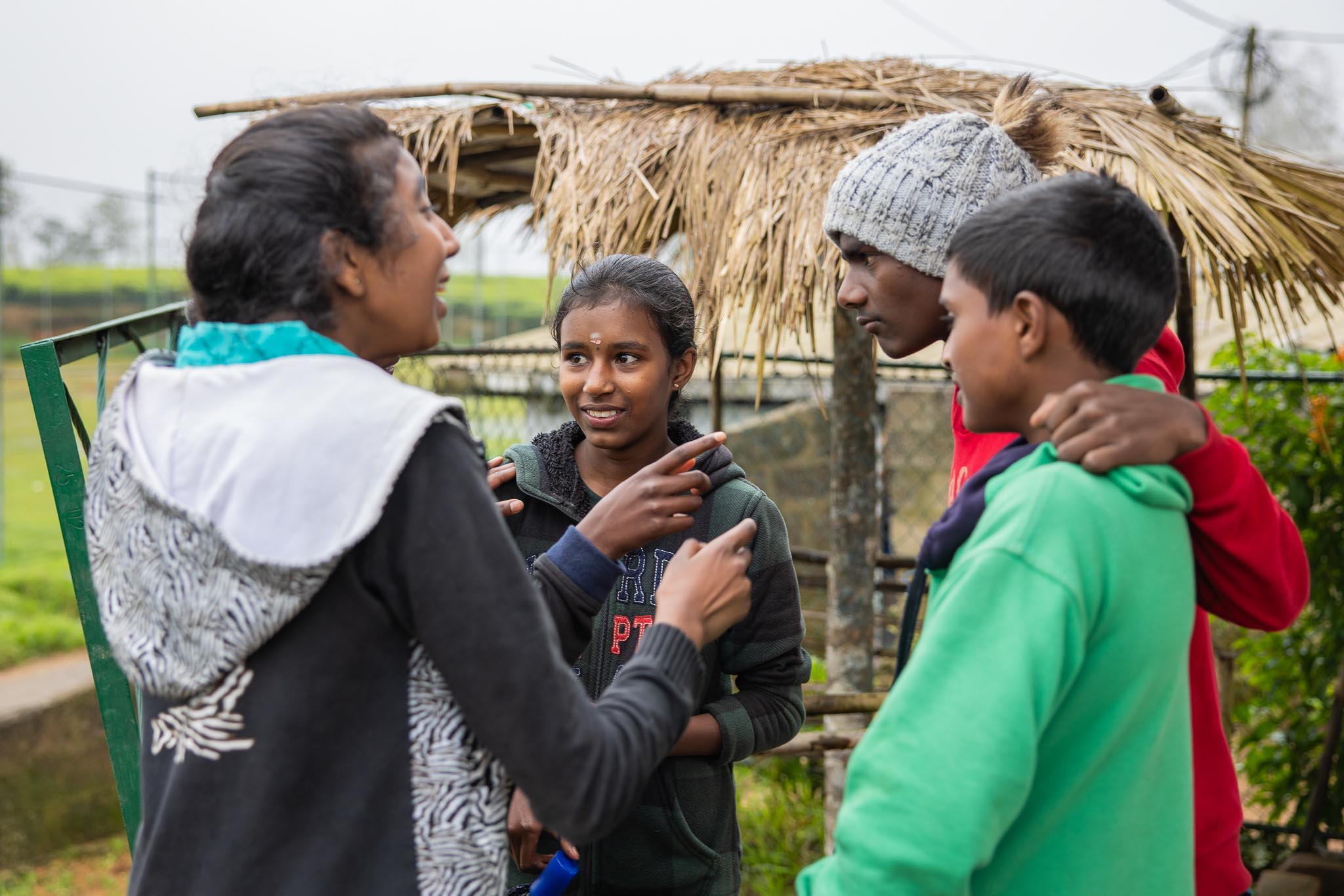
The children of Pedro Estate grew enthusiastic about the new learning opportunity that was given to them
At Pedro Estate, children have learnt to build weather stations with simple materials to understand weather patterns while contributing to an open-source research database. WeatherKids is just one of many programmes designed by Gavesha (explorations) – a platform providing supplementary educational tools to stimulate interest and interaction among children for science, technology, engineering, and mathematics (STEM) learning. This is indeed a spearheading initiative for plantation localities, where education has not kept pace with urban and rural areas. Across plantation schools, classroom teaching materials and learning resources are most often inadequate, and school enrolment and completion rates are generally low. Recruiting and retaining qualified teachers, particularly in the core subjects of Science and Mathematics, has been especially difficult.
The Kelani Valley Plantations, a member of the Mother and Child-Friendly Seal for Responsible Business, have long prioritised education, and in their action plan for 2023, prioritised STEM education.
“The company formed a partnership with UNICEF and Gavesha Labs to focus on children, their digital literacy, and engagement towards climate action and monitoring, which is a crucial part of future responsibilities on climate data management,” states Anuruddha Gamage, General Manager of Human Resources and Corporate Sustainability.
“The best part is, the children’s club members at Pedro Estate, are now engaging actively in climate-related data management. They are also contributing to estate management discussions on the impact of climate change on our business operations and to the decision-making process related to agriculture and plantation management.”
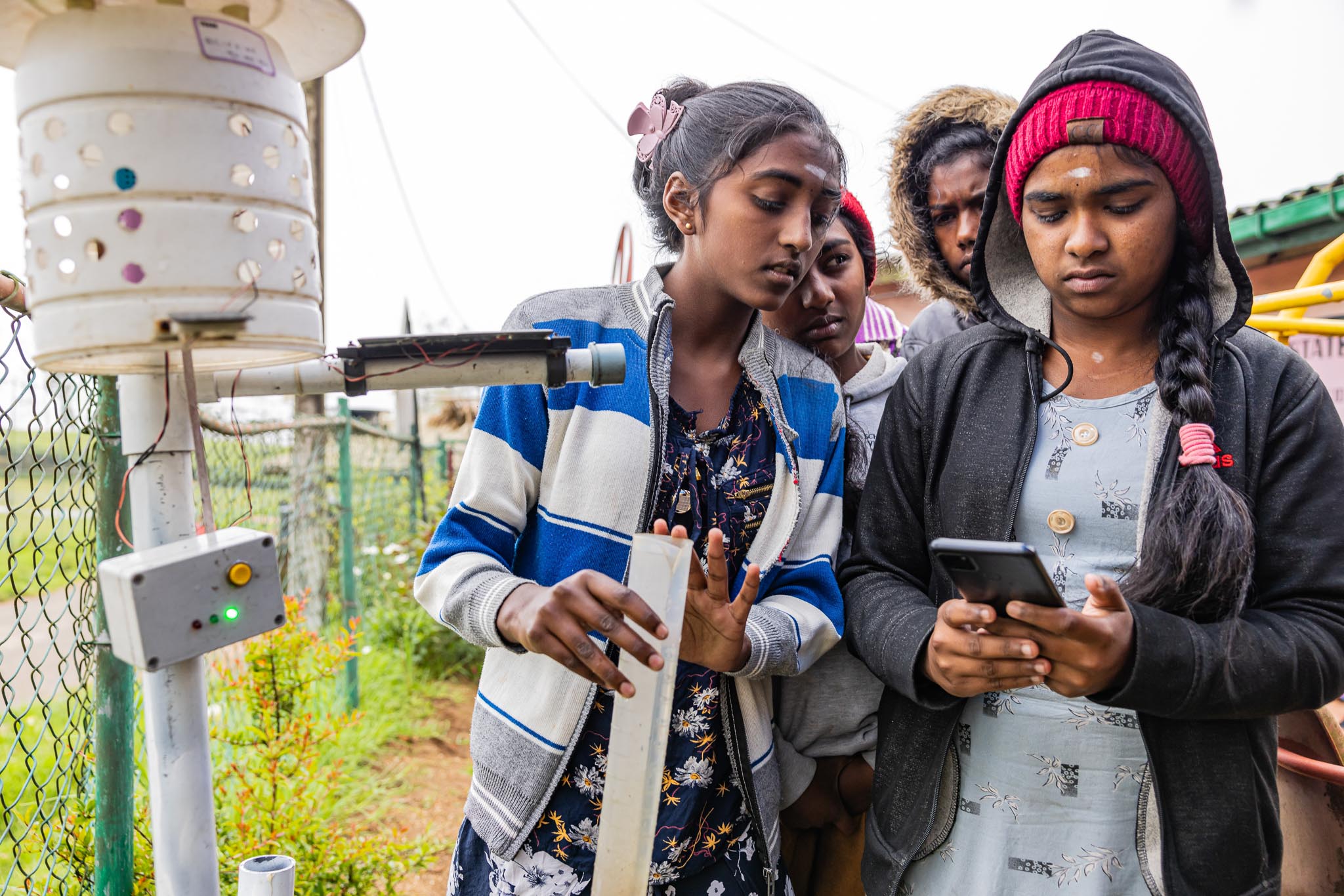 Collecting weather data is the programme’s first activity
Collecting weather data is the programme’s first activity
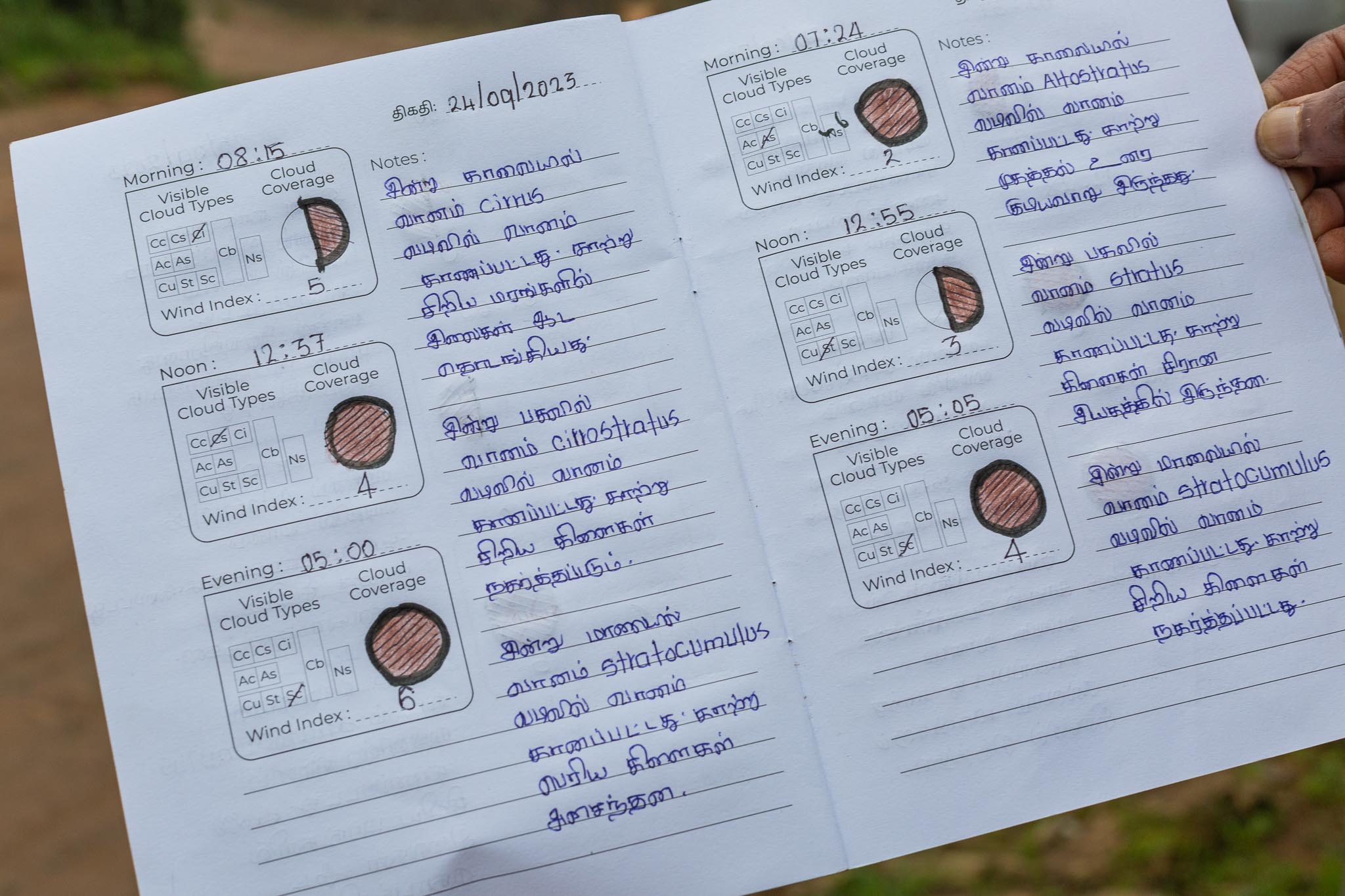
Children meticulously record their findings
“Gavesha is stimulating creative thought through a series of experiments, which the children will carry out,” says Lead Explorer/CEO Ushan Chaminda, one of its founding members. “Our mission is to prepare children for tomorrow, surrounded by the wonders of technology. We have made learning complex things simpler. An AI-rich application guides practical experiments throughout a child’s journey. Our motto is that education should never be boring, but fun.”
Lihini Senanayake is a co-founder of Gavesha. “We try to bring the school into the child’s home. We have a hardware service, we have content, and we have a software platform for the kids to build upon. And no one is stereotyping anyone. This is an equal place for girls and boys.”
Home weather stations have been set up at several points in Pedro Estate. “We note down the data every morning and we are able to say what kind of a day it is going to be,” says Ambika. “Now everyone is interested – both girls and boys. Some of our parents ask us to teach them how to take the measurements. They are happy and proud that their children are doing something meaningful within the estate. And I feel proud about that. We want to learn more and will share what we know with the next generation.”
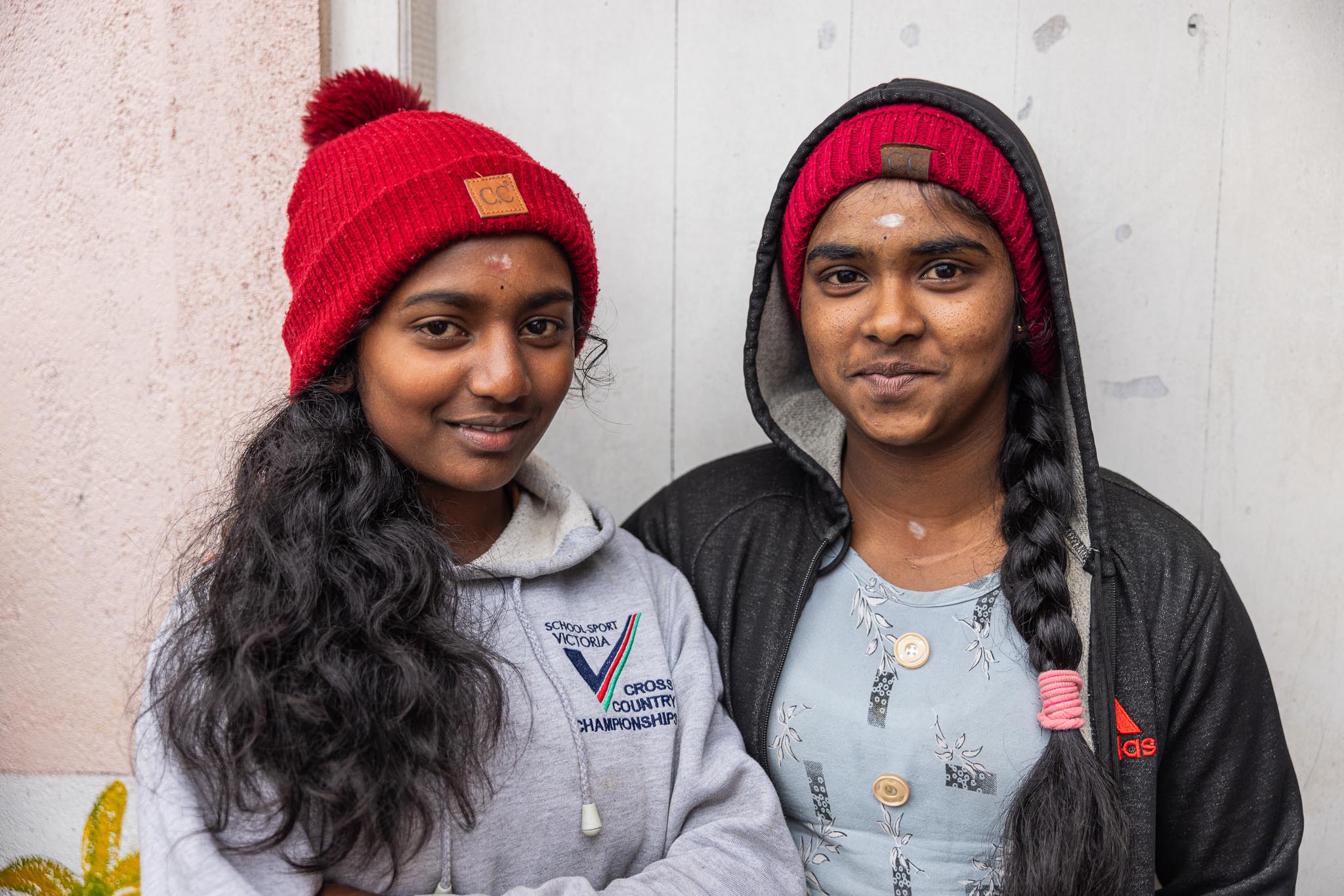
Ambika,15, (right) is confident in her ability to explain the operation of the weather monitoring station to others
The high level of commitment is remarkable. “When the children wake up in the morning, the first thing they do is go to the weather station, collect the data and send it to the data server,” remarks Ushan Chaminda. They learn about different aspects of the weather, how air pressure and rain are connected, for example. This is something practical, something that you can’t learn just from the blackboard and the books alone.”
“We broke it down into different workshops,” says Gavesha’s co-founder Randunu Kaushalya. “First, we demonstrated how to build a weather station, how to capture weather data. We explained how, with time, we can identify weather patterns and recognise environmental changes related to the weather. The second workshop was about how to present information related to changing weather patterns. The third workshop focused on using additional technology. Finally, we discussed the opportunities children could have if they developed knowledge about the weather – both in terms of everyday life and careers. And most importantly, children are beginning to understand how human activities can influence the weather.”
Discussions – including both children and adults – on how the weather and climate change are impacting people’s lives have been initiated.
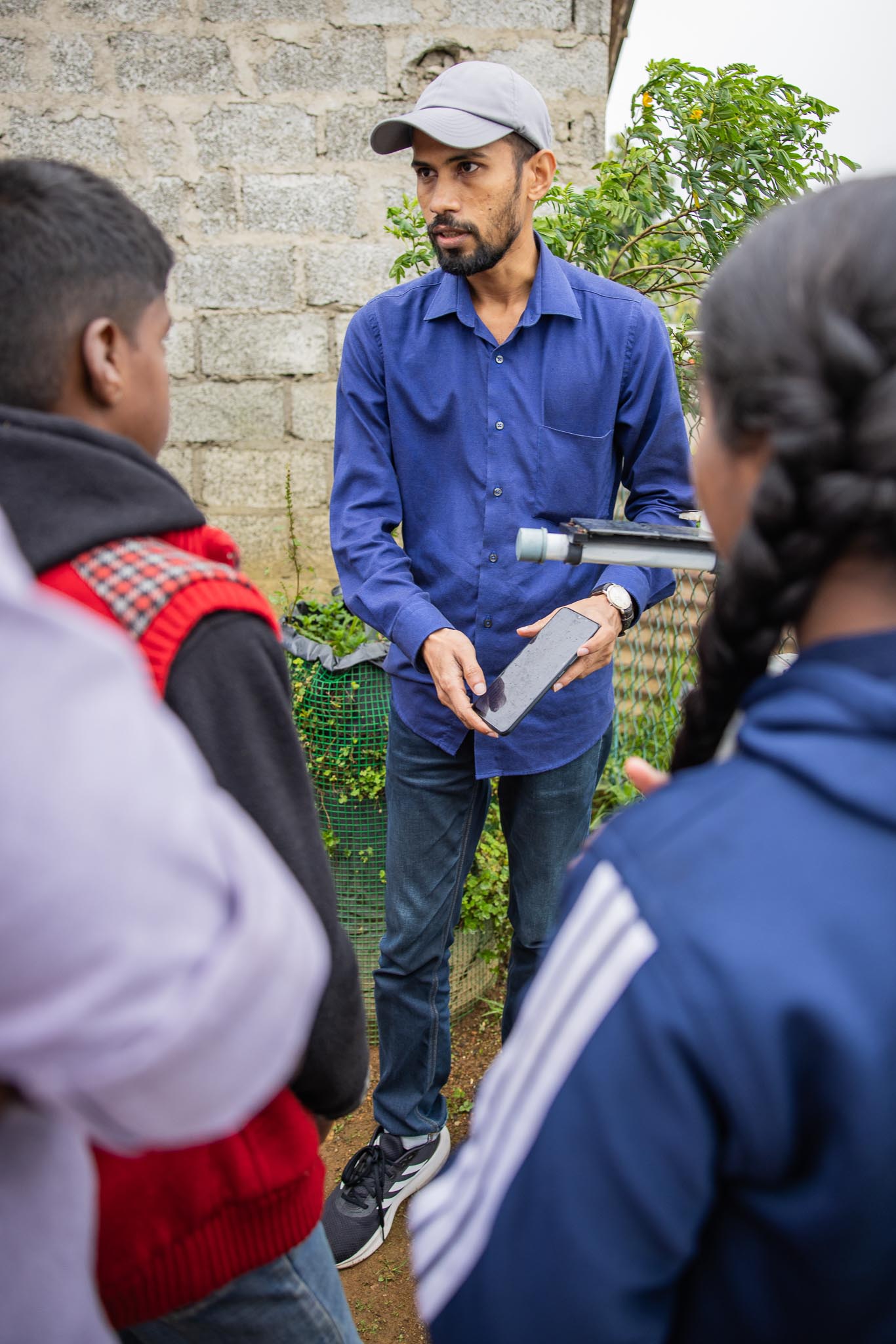
Randunu Kaushalya, co-founder of Gavesha Labs, notes that the children have made significant strides in the use of technology
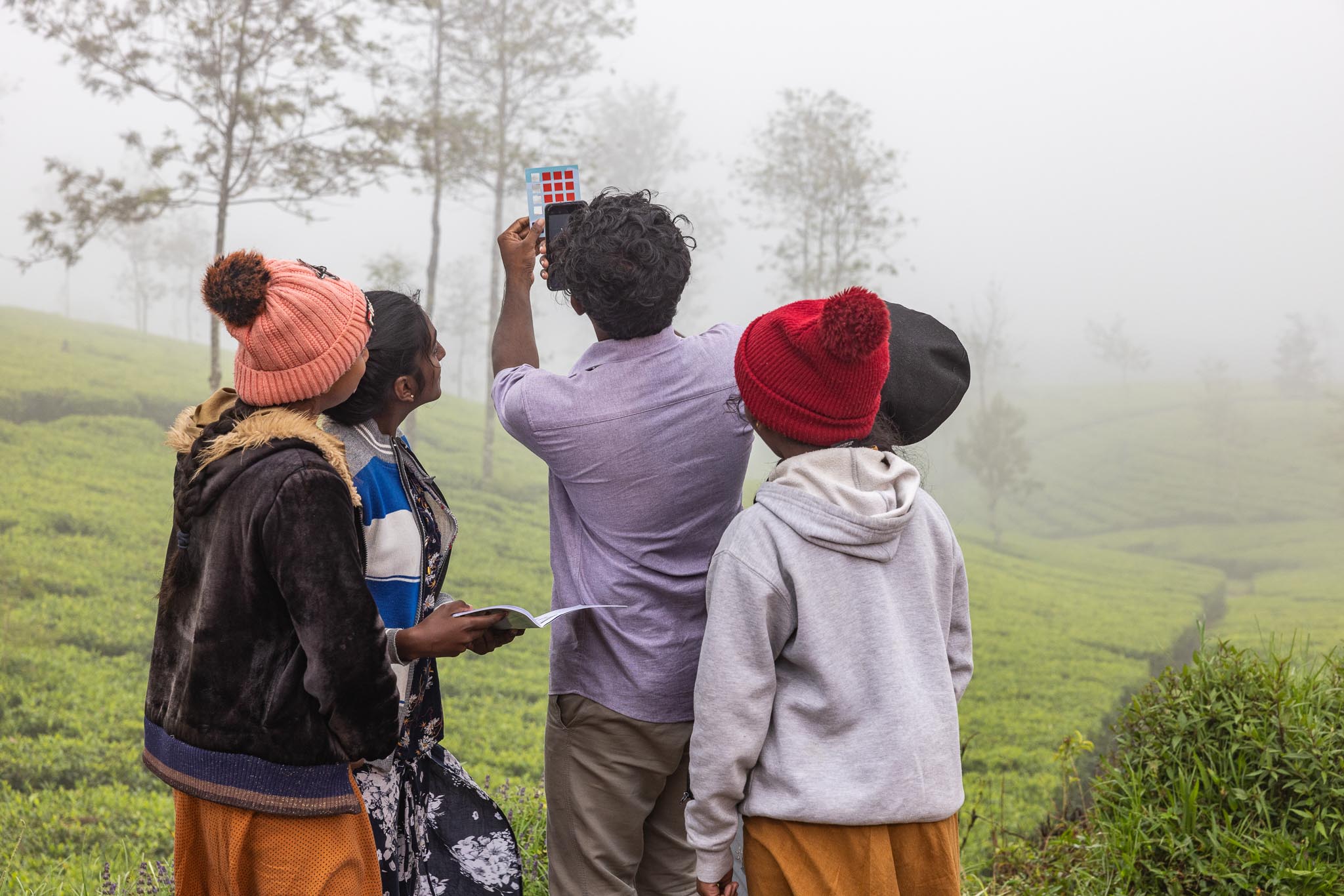
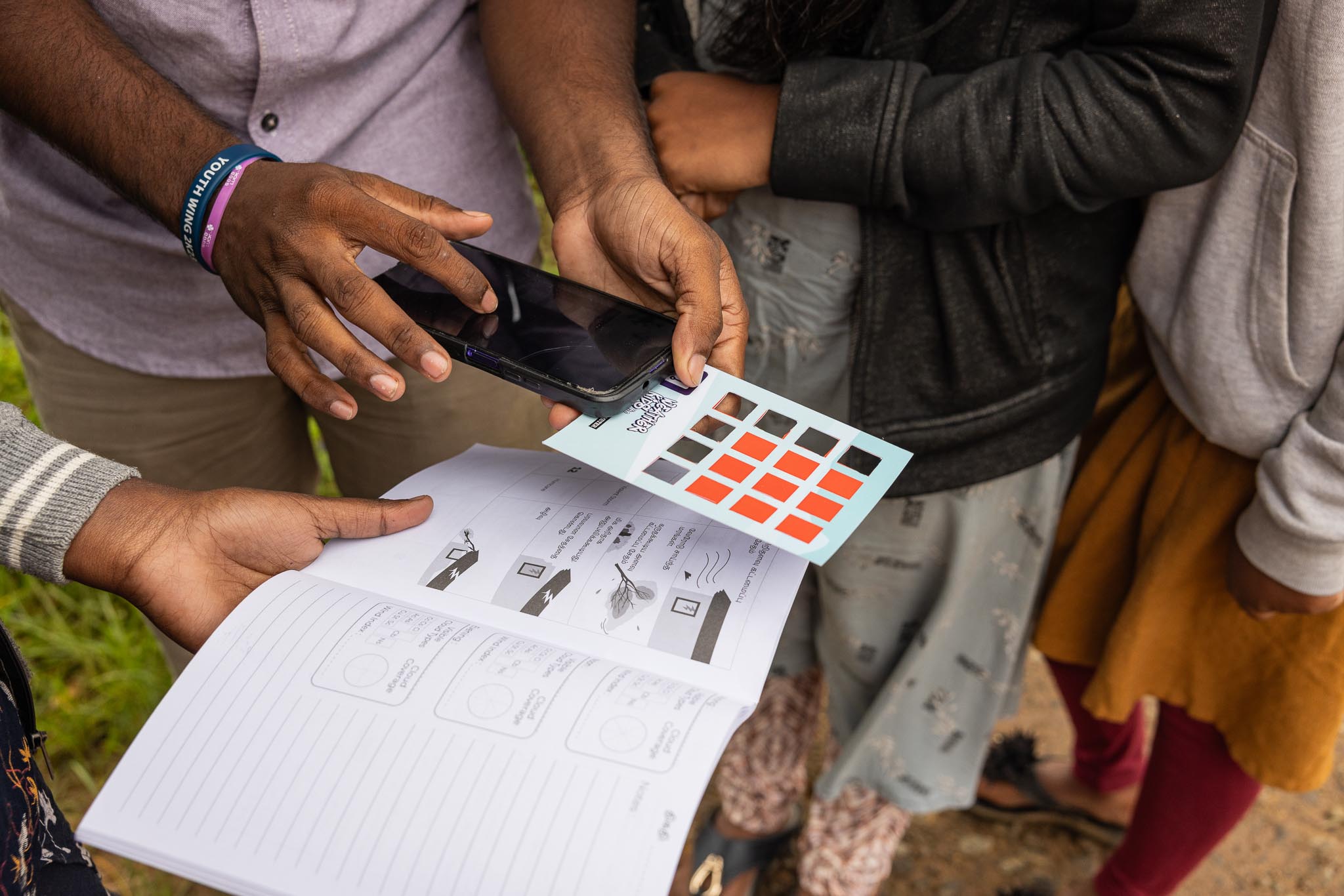
A group of Science undergraduates is supporting the children in their first activity
“Some people who didn’t take us seriously have become curious about what we are doing,” says Dhanush, 13. “They are treating us with more respect.” Rani Singaraja, the Children’s Development Officer notes that the changes taking place are varied and significant: “The university students coming all the way here, working with the kids and having conversations with them have had a positive impact. It’s a different kind of education. Children are motivated to experiment and learn. And they are all aspiring to go to university.”
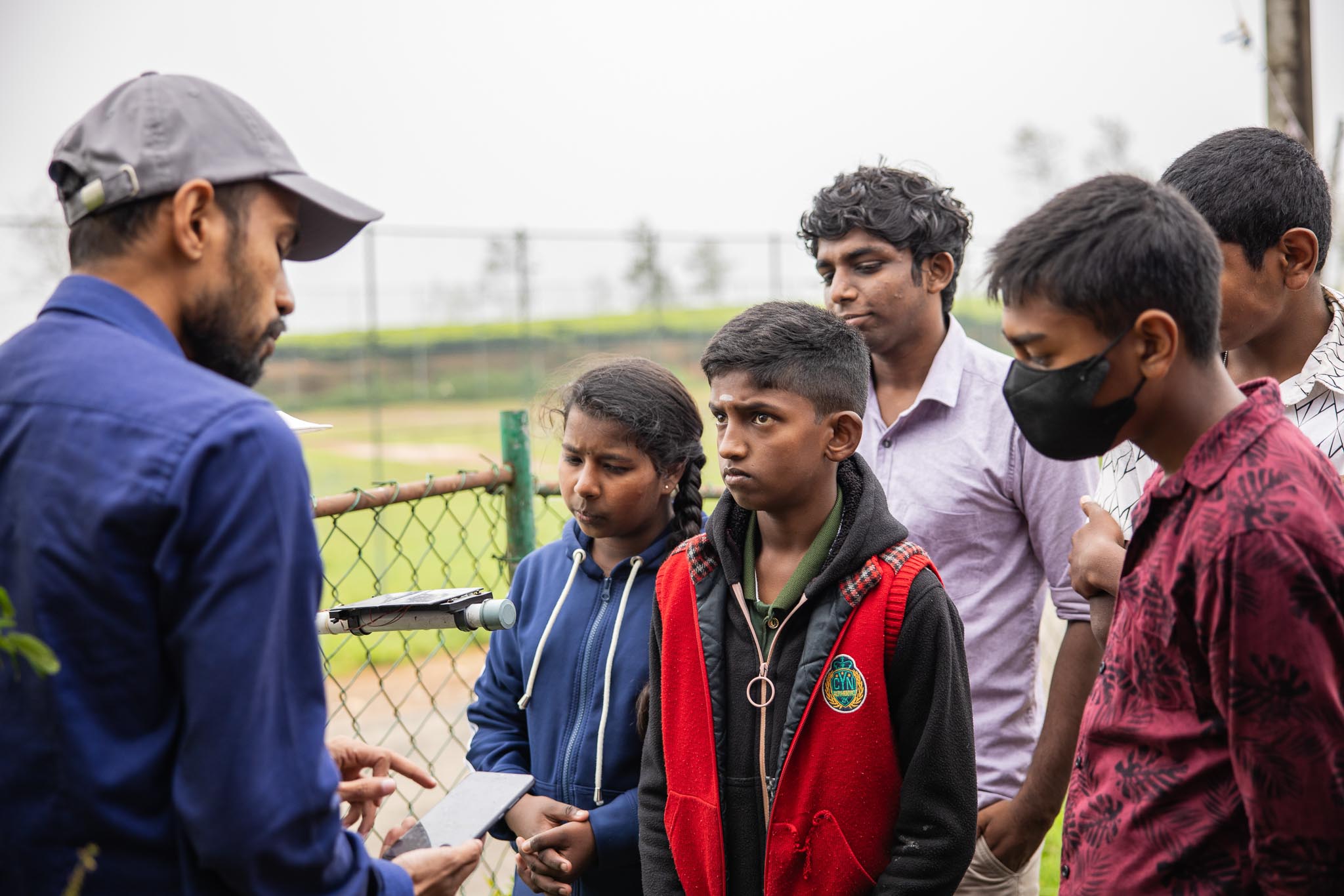
The programme is stimulating scientific thinking
* The names of the children have been changed to maintain their privacy.
The Mother and Child-Friendly Seal for Responsible Business is a collaborative initiative between The Centre for Child Rights and Business, Save the Children, and key stakeholders in the Sri Lankan tea industry. It aims to improve the well-being of families in Sri Lanka’s tea-growing communities through sustainable and meaningful investments by business entities in the tea supply chain (buyers, brands, plantation companies).
More information:
Website: https://childrights-business.org/SealInitiative Email: info.SL@childrights-business.org
By using this website, you agree to our use of cookies. We use cookies to provide you with a great experience and to help our website run effectively.